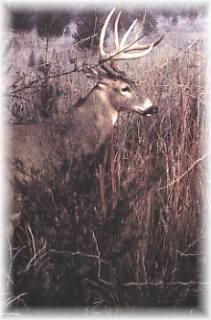Geary County, KS
 We invite you to share the magic that our forefathers experienced as they discovered this land we call home.
We invite you to share the magic that our forefathers experienced as they discovered this land we call home.
A tour through Geary County will inspire thoughts of the early settlers who journeyed westward on the trails of yesteryear. In the very heart of America's heartland, the pioneers discovered majestic vistas and rolling waves of tallgrass priaire lands characteristic of the picturesque Flint Hills. It is a region full of stories about courage, greed, determination, and innovation, where spritis of soldiers, Indians, and immigrants join scientists, students, and nature lovers.
Forts were built along major trails to protect white settlers from the Indians, and Fort Riley went on to play a key role in American military history. It was Cavalry Headquarters after the Civil War ... a story well told at the U.S. Cavalry Museum. Since World War I, members of Fort Riley's First Infantry Division, the "Big Red One," have been prominently protecting us aginst modern marauders, from Germany to Iraq.
Kansas' soldiers are honored at the Kansas Vietnam Veterans Memorial in Junction City, the county seat and metropolitan center of Geary County. While in Junction City, visit the Geary County Historical Museum which houses three galleries focusing on the history of the area in a native limestone structure dating back to 1903.
Visitors are surprised to see all the water in our region. Milford Reservoir is the largest lake in Kansas. It is a great tour stop where the Nature Center studies Kansas' wildlife, and the Fish Hatchery is among the country's finest.
Geary County, originally bore the name "Davis County" in 1855. For several years the citizens of Davis County complained about living in an area named for the President of the Confederate States of America, even though he was a Secretary of War when the county was named for him. In 1889, the county's name was changed to Geary after John W. Geary, Governor of Kansas Territory.
Explore Geary County
Geary County Courthouse
This Roman Revival building was commissioned May 20, 1899, and was completed in May, 1900 at a cost of $35,000
Junction City, KS Historic CourthousesFirst Baptist Church
The First Baptist Church was organized in Junction City on November5, 1865. This building was dedicated January 27, 1867, and served as the Baptist Church until the adjacent building was occupied in 1917. Under the stucco exterior are the original native limestone blocks.
Junction City, KS Historic ChurchesHistoric Opera House
The Junction City Opera House and City Offices/Fire Station opened in January, 1882, in a stately red brick structure featuring a tall pointed tower with a four-faced clock. In January 1898, almost 16
Junction City, KS Opera HousesMilford Nature Center
The Milford Nature Center is designed to give visitors a better understanding of and appreciation for the natural communities in Kansas. A trip to the Nature Center will reveal that Kansas has a rich abundance and variety of wildlife. Adjacent to the Nature Center is the state'
Junction City, KS Nature CentersWounded Knee Monument
This monument is dedicated to the men of the 7th cavalry who were killed during the Pine Ridge Campaign of 1890 and the battle that is known as Wounded Knee. This controversial engagement marked one of the last armed conflicts between the army and Native Americans.
Fort Riley, KS MonumentsPolk Hall
Known in its early years as West Riding Hall, this building was completed in 1908 and served until after World War II as one of two indoor riding halls.
Fort Riley, KS Historic BuildingsGeary County Historical Society Museum
The three-story, native limestone building which houses the Geary County Historical Museum, has been described by architects as a "unique and magnificent structure and an outstanding example of the stonecutter's art."
The building, originally the Junction City High School, was constructed in 1
Junction City, KS MuseumsGeary County State Fishing Lake
As an alternative to the two big reservoirs at Milford Lake and Tuttle Creek Lake in this area, Geary County State Lake is a smaller body of water with 99 acres of secluded fishing, free camping, hunting, and hiking. The lake is primarily intended to be used for fishing and no swimming is allowed.
Junction City, KS RecreationSpring Valley School
The Spring Valley Heritage Site, located west of Junction City at the intersection of Highway 18 and Spring Valley Road features a restored 19th century one-room schoolhouse and related out buildings. An 1870 period homesteader's hewn-log cabin has been relocated at the site.
Junction City, KS Historic SchoolhousesWainwright Hall - Fort Riley
Wainwright Hall is named for General Jonathan Wainwright who served as the assistant commandant of the Cavalry School during the 1930s. The building was constructed in 1889
Fort Riley, KS MuseumsTrolley Station
The Trolley Station was used as a baggage storage and waiting area for soldiers and families riding the inter-city trolley between Junction City and Fort Riley from 1901 until 1907. In 1907
Fort Riley, KS Historic Buildings